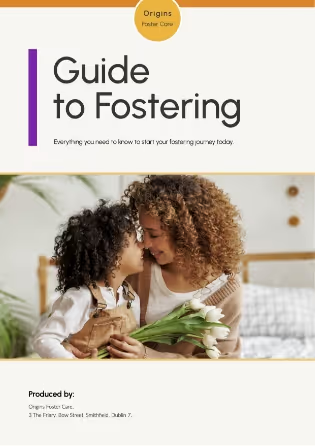Origins Foster Care Top 6 Tips for Foster Parents this Christmas Time

According to the song, ‘It’s the most wonderful time of the year’. We see it everywhere, starting in October and becoming more intense as Christmas approaches, images everywhere and television adverts full of smiling happy families, matching outfits, the perfect Christmas trees with stacks of presents underneath and tables beautifully laid out with delicious food and drinks.
However, as foster carers you know that behind this over commercialisation of Christmas, some children find this time of the year overwhelming, the thoughts of the children in your care will revert back to their previous experiences of Christmas evoking both positive and negative emotions. Many may have difficulty too dealing with contact with their birth families at this time or perhaps not have any contact. This is a time of the year when many children in care find it difficult to allow foster parents to get through their defences, they may be feeling exceptionally vulnerable at this time.
Despite its challenges, Christmas can be made easier for everyone when we take a little time to understand the impact of trauma on enjoying the festive season and we are offering some tips we hope will help you to cope with whatever your child presents to you over the Christmas period.
1. Manage your own expectations of the festive season. Remember according to Dr Mary O Kane connection is more important than perfection. Your Christmas tree may not be picture perfect and the children may even deliberately disrupt Christmas as deep emotional pain comes to the surface. If you are feeling overwhelmed, reach out to your fostering social worker for support. Let go of the idea of the ‘perfect Christmas’
2. Try to find out what your child’s expectations of a ‘Christmas Day’ are in advance and discuss what Christmas Day might look like in your family – they might mention that:
- Adults will be fighting and arguing
- They will not get the presents they hoped for
- They will have to give ‘hugs’ to adults they do not know or like
- They will have to be really well behaved so as not to upset their parents
- They have to eat everything on their plate even if they do not like the food
- Their house and dinner never looks like the ones on TV
3. Think about Christmas traditions
- Ensure the child in care is included in your family traditions (have they got a Christmas stocking with their name?)
- Include a tradition from the young person or from their faith or culture if different to your own
- Do not pressurise the child to join in all of the festivities or neglect them if they choose to opt out.
4. Plan in advance for your family/friends visiting your home.
- Children in your care may not be comfortable with hugs from ‘Granny’ or others
- Children may not want comments about how they look and young people may not want to engage in small talk with your relatives. It may be worth briefing family in advance.
- Large groups of extended family can be overwhelming for children in care, plan in advance with your child what they can do if they are feeling overwhelmed.
5. Prepare for children believing Santa Claus won’t know where I am this Christmas!
- Encourage the children to write a letter to Santa
- Visit Santa to reassure your child that he will know where they are
- Involve the children in putting up a ‘Santa Stop here’ sign
6. Practice Self Care
- Share the role of caring with your partner or someone in your support network
- Build in time for breaks for yourself and some me-time.
- Relax with a cup of hot chocolate with the children in front of the TV- the chores will wait. Cherish the magic moments-they may be short but sweet.
Undoubtedly, there is pressure to be happy over the Christmas period, but this is by no means a rule. Instead of pressuring yourself or others to be merry and have a festive Christmas, consider the above tips and advice and keep your Christmas trauma-informed. The healing process begins and is felt when we feel heard. We can offer some compassion to ourselves and those around us this festive season by hearing people, not just verbally but physically and emotionally.
We would like to wish all of our foster carers a peaceful Christmas and thank you for what you do. If you are thinking of becoming a foster parent, we would love to hear from you if you think you can offer a space in your heart and your home to a vulnerable child.


